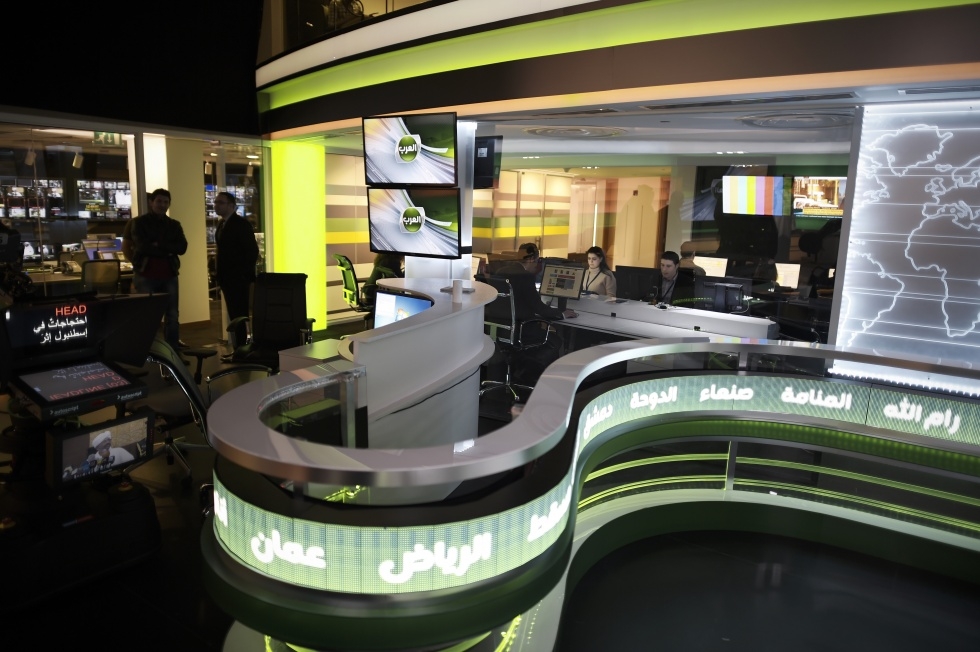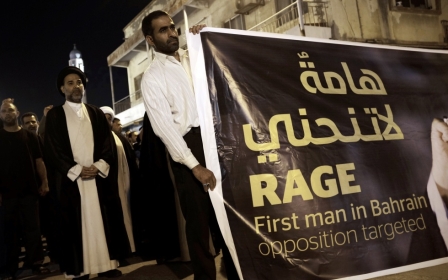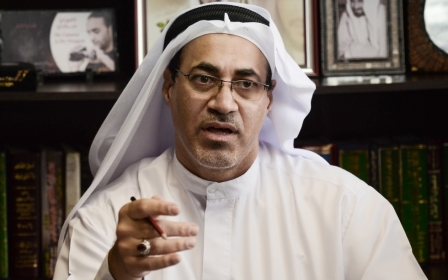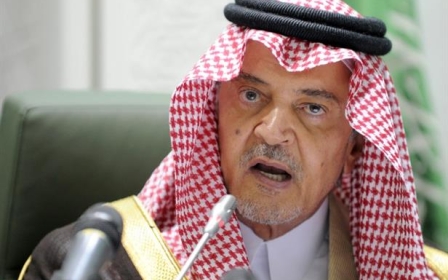The curious case of a still-born Arab news channel

Bahrain's closure this month of Alarab news channel just hours after its initial broadcast, is a baffling affair not because of the closure itself, but because the station seemed to genuinely believe it could operate freely in the country.
This is particularly surprising given the business-savvy of Alarab's owner, Saudi Prince Alwaleed bin Talal, described by Forbes as "one of the world's most high-profile investors." He did not become one of the richest people on the planet by being naive, yet his decision to base the station in Bahrain seems exactly that.
Jamal Kashoggi, Alarab's general manager, had said the decision was based on the fact that Saudi Arabia does not allow "independent" channels. However, it was clear well before the channel announced in December 2011 that it would be based in Bahrain that it could not be "independent" there either.
Earlier that year, Manama - with military help from the Gulf Cooperation Council (GCC) - put down a popular uprising against the monarchy that, before the authorities' heavy-handed response, had initially called for reform. Long before then, the monarchy had established itself as utterly intolerant to dissent - hardly conducive to Kashoggi's promise that Alarab would be free to report on any subject.
True to the channel's intentions of trying to be independent as well as even-handed, it launched with an interview with a Bahraini opposition leader, followed by the country's information minister. However, hosting a critic of the monarchy seemed to be enough to seal the station's fate.
Excuses excuses
The Information Affairs Authority (IAA) said it had "decided to halt the activities of Alarab" following "its failure to obtain the required licensing approval to commence broadcasting". This excuse is laughable given the length of preparatory time prior to the launch.
It is also inconceivable that an accomplished businessman such as Prince Alwaleed would go to all the trouble and expense of setting up a channel without getting the necessary permits. Just days before broadcasting, Bahrain's information minister praised the upcoming launch, so if Alarab lacked the necessary paperwork by then, the authorities would have been fully aware.
Equally implausible - and no doubt an attempt to save face - was Alarab's excuse: "technical and administrative reasons". Technical glitches and administrative issues are spotted and solved prior to launching a major news channel, not a few hours afterwards.
The IAA's accusation that Alarab "also failed... to take account of efforts aimed at stemming the tide of extremism and terrorism throughout the region and the wider world" is telling of the authority's real reason for shutting it down: that any opposition to the monarchy is deemed extremist and terrorist.
For added comedy value, the IAA said its decision "has no impact upon principles of media freedom and is strictly based on the government's commitment to ensuring the diversity and impartiality of media outlets in the Kingdom."
Media restrictions
Type in "Bahrain" in the search engines of respected press-freedom watchdogs such as Reporters Without Borders (RSF), the Committee to Protect Journalists (CPJ) and the International Federation of Journalists (IFJ), and it is clear that "media freedom," and "the diversity and impartiality of media outlets," are alien concepts in Bahrain.
This month, days after the suspension of Alarab, the CPJ condemned Bahrain's revocation of journalists' citizenship, saying: "Bahraini journalists who dare to express critical views already face serious risks, including legal action and imprisonment. Now Bahrain is punishing them by taking away what they value most."
The CPJ called on the authorities "to stop jailing, harassing, and intimidating journalists and to allow Bahraini people their fundamental right to receive, share and debate a wide range of information." This highlights the absurdity of the IAA president's claim that "freedom of expression and opinion... are prevailing in the kingdom."
Dilemmas
Alarab's suspension is somewhat embarrassing for Manama, given that its information minister last month said the launch "would bolster Bahrain's media status" - unless by that he meant its status as a media repressor.
However, Alarab is in a far tougher - perhaps impossible - predicament. Given Bahrain's dire press-freedom record, and the lack of any official condemnation of Manama's closure of the station from Saudi Arabia, Bahrain's primary regional ally, there is no reason to believe that Manama will change its mind and allow Alarab to operate independently.
As such, if it resumes broadcasting from Bahrain, the impression - indeed the reality - will be that it is succumbing to state restrictions. This will cripple its image and its viewership from the start.
However, given the repressive media climate in the Arab world, this pan-Arab channel would be hard pressed to find a country in the region where it could operate independently. Critical reporting or commentary of the leadership of the host country, or that of its regional allies, would not be tolerated. Basing itself outside the Arab world is possible in theory, but relocating anywhere now would be a huge, lengthy and costly undertaking.
For all the hype prior to its launch, the still-birth of Alarab highlights that it is business as usual in Bahrain, and that independent journalism is still a pipe dream in the Arab world. One wonders what Prince Alwaleed was thinking.
- Sharif Nashashibi is an award-winning journalist and analyst on Arab affairs. He is a regular contributor to Al Arabiya News, Al Jazeera English, The National, and The Middle East magazine. In 2008, he received an award from the International Media Council "for both facilitating and producing consistently balanced reporting" on the Middle East.
The views expressed in this article belong to the author and do not necessarily reflect the editorial policy of Middle East Eye.
Photo: Alarab News Channel staff are seen on duty at the editorial office in the Bahraini capital Manama on 15 December, 2014 (AFP)
New MEE newsletter: Jerusalem Dispatch
Sign up to get the latest insights and analysis on Israel-Palestine, alongside Turkey Unpacked and other MEE newsletters
Middle East Eye delivers independent and unrivalled coverage and analysis of the Middle East, North Africa and beyond. To learn more about republishing this content and the associated fees, please fill out this form. More about MEE can be found here.





